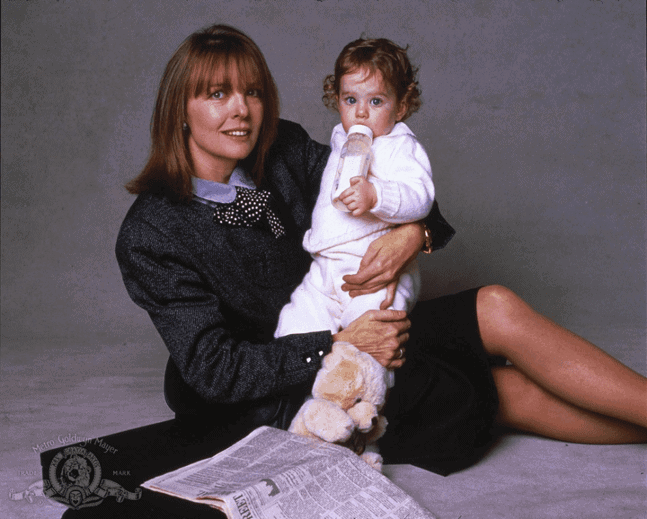Special International Women’s Day interview and case study on gender discrimination at work
Author: Courtney Bowie, founder and CEO of Her Lawyer, the law firm for ambitious women in business.
Estimated reading time: 12 minutes
In the lead up to International Women’s Day, I’ve been racking my brain for something I can do that’s more than a gesture…
As I’m sure you’ve guessed by now, I am incredibly passionate about championing women’s rights and moving the needle on gender equality. Many an unsuspecting dinner guest have wandered onto the topic of women’s safety issues, domestic violence or the gender pay gap and have been forced to spend an entire evening on the receiving end of an impassioned seminar on gender issues.
This International Women’s Day I’m taking it out of the dining room and into the media. I’m shouting from the rooftops about a dirty little secret that, frankly, shits me to tears.
Before we get into it, a little bit of back story –

One of my all-time favourite movies is Baby Boom starring Diane Keaton. Long story short, JC Wyatt (Keaton) is part of the new wave of high-powered career women in 80s NYC.
She’s being primed for partnership in her management consulting firm by her male boss, who mansplains to her that if she wants to make partner, she has to accept that she can’t “have it all”.
Unmarried and career obsessed, JC quickly acquiesces. It’s not until a baby unexpectedly lands in JC’s lap (literally) that she starts to understand exactly what that means.
After a short struggle trying to balance caring for a baby and the demands of her work, she’s demoted and forced to resign.
She retreats to country Vermont where, in a satisfying turn of events, she establishes a successful gourmet baby food business.
Her old client reaches out via her old firm and offers to buy her out. The deal is generous but just before she says yes, JC realises that to step back into that world she’d have to sacrifice the beautiful work life balance she’s built for herself in her business. To the utter shock of everyone in the room, she turns them down.
It’s not hard to see why the film appeals to a self-confessed feminist.
In fact, I watched the film again the other day to help inspire me to write this article. And then it struck me. The ending is so empowering and yet… this film was made in 1987. Two years before I was born. And very little real progress has been made in over 30 years.
Women are still expected to sacrifice time with family if they want to have a successful high-powered career. C-suite, board and partner positions are still overwhelmingly male.
Meaningful work-life balance is still predominantly enjoyed by women running their own small businesses, rather than employed women. And women’s careers still suffer when they become carers. Far more often than you would think, women are faced with redundancies, forced demotions or pay cuts simply because they’ve become a parent.
In my conversations with business owners over the years, I’ve been privileged to have women share with me their story of why and how they started their business. You would be shocked how many women’s stories mirror that of JC Wyatt.
One of the most fierce and fabulous female founders I know is the indomitable Stacey Fisher, co-founder of Minnow Designs, a children’s beachwear label.
Stacey graciously agreed to let me interview her so I can share her story with you.
Before I do, can I ask you one favour? If when you’ve finished reading about Stacey’s story you’re shocked, or annoyed, or surprised, or inspired please share this article.
Start a conversation.
With your husband, your mum, your neighbour or your barista. If we have any hope of changing this situation, it’s got to start with bringing it out into the open and actually talking about it.
Let people know this is going on! And help women who might find themselves in this situation to understand what they can do about it.
Right, on to the interview:
So, tell me Stacey, what did you used to do in your former life?
I was a marketing manager for a big Fortune 500 Fast Moving Consumer Goods company. I’d spent basically my whole career in FMCG by the time I fell pregnant with my first baby.
And what happened with your redundancy?
At the time I fell pregnant, my husband had a role where he travelled a lot for work, so I knew that my existing role, which involved lots of travel, probably wasn’t going to work for me.
I knew there were roles in the business that I could’ve moved in to and stayed relatively local, for example, there was local manufacturing. So in the lead up to taking my maternity leave I had some discussions with HR about coming back part time, moving into a role with less travel or coming back to my role and balancing some of those travel needs using technology, like videoconferencing. I’d really made it clear from the moment I’d fallen pregnant to those around me that I would need some flexibility when I came back to work.
But when my son was about 9 months old, I brought him into HR to discuss my return to work. I found out they had “done some restructuring” and most of my team had moved on. So literally there was really no-one left in the business who knew me. I had a girl in HR who I’d never met before tell me in that meeting that unless I was willing to come back full-time, and do the travel, there was no job available for me.
What did you do?
I went away and got some legal advice. And I did some research – I found out there was a comparable part-time role going in a different team. My lawyer told me the business has to do their very best to accommodate a part-time request.
So I went back to HR and said, “Look, there is this part-time role going, why wasn’t it offered to me?” At which point they basically gave me a big redundancy payout and you know, made it go away.
For me, that money gave me breathing room to start my first business and invest in the first production run for Minnow Designs. I used it for my financial future.
Why do you think that this happens to women?
There’s a lot of shame associated with redundancy and you’re at this deeply vulnerable time in your life where everything has changed. You have the baby and then a week or two later your husband puts on that same suit and leaves at the same time, the same way they always have. They get on the same bus, they go to the same office, they collect their coffee from the same place and then their life kind of goes on.
Yes, it’s harder, they’re sleep deprived. But for the woman who, if she stays at home for any period of time after the birth (which most women do), your life has changed fundamentally. Your body is different, your clothes are different, your routine is different. Everything about you has changed. Your whole identity has changed. It’s a whole bunch of cultural baggage that comes along with motherhood. You are so vulnerable.
And when something like a redundancy happens in that period, most women blame themselves. We live in a culture of shame, particularly for women. I think for me, certainly, and for a lot of my friends. We have to remember to say – “This happened to you. This wasn’t something that you created in your own life. This happens to 1 in 5 women. You’re not an orphan here. It’s not you.” But we take it personally.
I haven’t had a conversation with a single woman about this scenario where they haven’t tried everything to make it work, but still blame themselves. And all of that stuff went through my mind as well. The fact is maternity leave provides an opportunity for the business to do this and it’s not right.
What do you think the solution is?
I think there’s certainly a cultural shift that needs to take place. I think the fact that women are in this very uniquely vulnerable time in their lives allows businesses to get away with this.
We need to share the message. We need to see the generation of women that was the first to spend most of their life in paid employment –the boomers – and see that they’ve been screwed over. We’re the next generation. It’s our responsibility to do something about that so that the next generation down can kind of climb up on our shoulders.
We need to take much better care of our finances so that we don’t roll over when this happens.
The mythology around motherhood is so ingrained in our culture. We need to push back on this crap from employers about our roles as wives and mothers in the workplace.
What’s your advice to women facing a similar situation?
Firstly, protect your interests. Go see a lawyer. There’s a bit of fear around the costs but I would encourage any woman to get advice. It’s an investment that can make you many times that in a payout.
Next, get angry. Protect yourself. Don’t buy into the pretence that it will ruin your life if you make waves. If the next employer doesn’t want to hire you because you protected your own interests, they’re not going to take care of you in that workplace anyway. So move on along and use that money that you get. Don’t stick it on the mortgage. Use it for something that protects your interests into the future. Look at this redundancy in the broader context of your financial security as an independent human being, not as a wife, not as a mother.
Tell us a little bit about what you are doing now. How has that experience translated into what you’re doing now?
I was very lucky in that I had a good friend at the time who was a fashion designer and we had been talking when we were pregnant about going into business together as a bit of a “maybe one day” thing.
Before I’d even had those discussions with my employer, she and I had worked up some business plans… It wasn’t a serious thing until I got the redundancy payout. Then we were like, “Let’s do it.”
We both did actually go back to jobs and then have second babies and things didn’t really kick off until those second babies were old enough for care. But we’d certainly worked up the concept and I think we’d even gone into production before our second babies were born. By the time we had two children about the same age, we were ready to hit go. We’d also quite cleverly, I think, started a little eCommerce business in that year that we’d both gone back to work between children because we knew that there was this massive skills gap that we needed to fill. That was our first kind of taste of running a business. We then sold that little eCommerce business.
We’ve also had separate businesses on the side. I started a marketing agency and she started a knitwear design business
We officially launched Minnow Designs, a breach accessories label, in October 2016 and we kind of got bigger and bigger and all of a sudden it wasn’t a hobby anymore. It was making real money. Real revenue. All of a sudden we were, “Oh, we have a real business that we love working on. We love working together.” So I sold my agency and we got stuck into full time in October 2018.
Now we have a range of quite distinct, unique, beautiful swimmable water shoes, sandals and kid size dry bags. Then we’ve got a whole innovation pipeline of new products. We have a wholesale arm and an eCommerce arm and now we’ve got international export as well. So it’s a simple concept but it’s a very big and complicated business because we spend a lot of our time doing things like warehousing and logistics and all that fun stuff that no one talks about.
What’s next for you and Minnow Designs?
We’ve recently launched in the US and we have distributors and agents there. We just can’t quite believe the scale in the United States versus here. So we’ve just really upgraded all of our problems because there’s stuff that we hadn’t even anticipated with a market size that large. So now we’re madly scrambling to make that a success. But we’ve already got runs on the board. So we’re sort of pretty excited about that. Then we’re also working on a plan to leverage some of the work we’ve done kind of almost accidentally with Chinese Australian women to launch into China as well.
So in the space of 7 years you’ve gone from being made redundant on maternity leave to starting 3 successful businesses, selling 2 of them and turning 1 of them into an international success story. Congratulations.
Yeah. Well, yeah. I’m really proud of what we’ve been able to create. But it wasn’t like I blazed out of there and said “I’m going to start a business” and Dolly Parton was singing “Nine to Five” and everything. It didn’t happen instantly. There was this kind of this process that we had to go through to learn all the skills for running a successful business. Crazy right?!
To answer all the questions I know are burning in your brain right now, here’s Carly Stebbing, my friend and founder of employment law firm Resolution 123, with everything you need to know about discrimination against women in the workplace…

What workplace and flexibility rights exist for women during their pregnancy, while they’re on maternity leave and once they return from maternity leave-what can they ask their employer for?
To answer this question fully would require a much longer blog.
To summarise, during pregnancy, women have the right not to be discriminated against because they are pregnant. They have the right to take personal leave, the right to a safe job and the right to up to 12 months of unpaid parental leave after 12 months continuous service.
Once on maternity leave, women have the right to “keeping in touch” days and the right to be consulted about changes to their pre-parental leave job. They also have the right to request up to an additional 12 months unpaid leave.
When their maternity leave comes to an end, women have the right to return to their pre-parental leave job or if it is not available, the right to return to a job nearest in pay and status. They also have the right to request flexible work and to not be discriminated against because of their new caring responsibilities.
Does Australia have a discrimination problem when it comes to mothers in the workforce?
Yes, the statistics above speak for themselves. Part of the problem is that men don’t exercise their rights to parental leave, most of the entitlements described above are available to men as well.
Have you ever experienced sex discrimination? Is this why you founded your own business?
Yes- both gender and carer’s discrimination. When I started my first job in law, I was paid thousands less than my less qualified male peer – at an employment law firm no less. When I decided to leave traditional law and look for a more flexible job after having my second baby, recruiters would refuse to put me forward for jobs I was plainly well qualified for on the basis of my carer’s responsibilities.
I thought, “I have the capacity to create a firm that can help women being discriminated against and create work for parents that want flexibility”. My experiences certainly impacted my decision to start Resolution123.
What do you think is getting in the way of women and flexible employment?
There is still a prevailing view amongst employers that flexibility is a privilege to be earned, rather than a necessity to facilitate women returning to work and accommodate the social need to care for our children.
As such, most employers start from a place of no, it can’t be accommodated, it’s inconvenient to the business, it hasn’t worked in the past and so on.
This is completely contrary to the future of work which is task based (not hours based) and can be performed anywhere. It is well documented and researched that working mums are the most productive and loyal in the workforce.
This needs to stop being a woman problem. It is a community problem, a societal problem. It is not the 1950s: women need and want to work and men need and want to spend more time with their children.
Government policy needs to change to encourage men to step up to their carer’s responsibilities and exercise their rights at work to parental leave and flexible work. When both sexes are caring equally and exercising their rights at work equally, discrimination on the basis of sex, pregnancy and caring responsibilities will decrease.

Even though this type of thing shouldn’t be happening at all, I’ve also heard a few stories of this being a catalyst for women bouncing forward (to borrow from Sheryl Sandberg) into a fantastic business, just like Stacey.
There are many women who can leverage their professional skills and expertise to launch their own business. Barriers to entry for female business owners are at an all-time low. Even if you want to get away from your industry, a redundancy can be a blessing in disguise and an opportunity to dive into your passion.
When you’re negotiating the terms of your exit (and if you’ve spoken to Carly and her team, they’ll make sure you know your rights and help you figure out a strategy to get what you deserve), keep in mind what you might want to do next, so you can negotiate your way out of a restraint clause if need be.
If you receive a redundancy payment, think about how you can put that money and your time to the best possible use.
Once you’ve decided to start your own business, make sure you connect with a great team of professionals (including a business lawyer, accountant, insurance broker and business advisor) to support you as you grow your empire.
Your awesome skills + start up capital (in the form of a redundancy payment) + trusted team of advisors + time to devote to your business is a promising recipe for business success.

What to do next
- If you’re planning parenthood and potentially facing discrimination, forced demotions or redundancy, KNOW YOUR RIGHTS. Knowledge is power.
- If you’re in the midst of a situation like this, get in touch with Resolution123 today and get some advice on what you can do.
- If you’re on the other end and feeling inspired to start your own business (or already have!), get in touch with Her Lawyer and get started building your professional team. We can help you connect with a great team that will back you 100% and help you make the most of every dollar and every minute you devote to your new venture.
- Don’t fit into any of the above categories? Then SHARE this article. I’ll bet there’s someone in your network who needs to know this information and connect with one or more of these resources. Even if there’s not, at the very least you’ll help keep this important conversation going. Oh, and don’t forget the hashtag #eachforequal.
Acknowledgements
Many thanks to the following people for their generous contributions to this article:
Stacey Fisher, co-founder of Minnow Designs. Thank you for sharing your story and your advice to help other women facing workplace discrimination.
Carly Stebbing, founder of Resolution 123. Carly is passionate about helping women to stand up for their rights in the workplace. Thank you for sharing your knowledge and expertise.
PS: This is just some of the golden nuggets Stacey shared with me in our interview. Everyone who’s watched it so far has come away inspired. It’s worth watching (or reading) the whole thing. You can watch my entire interview with Stacey below:




